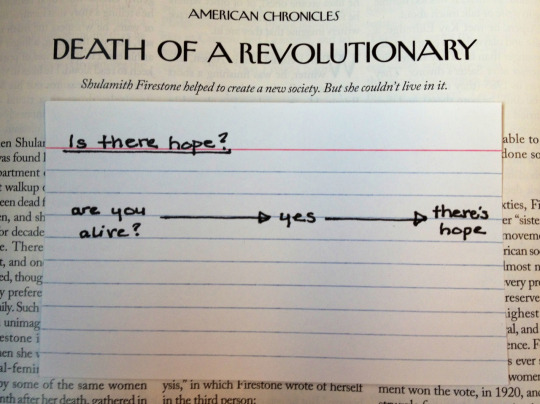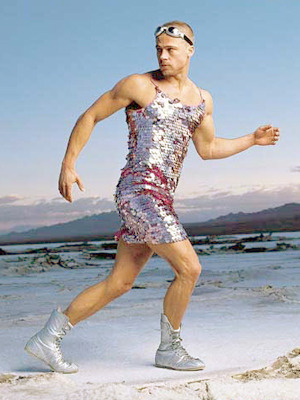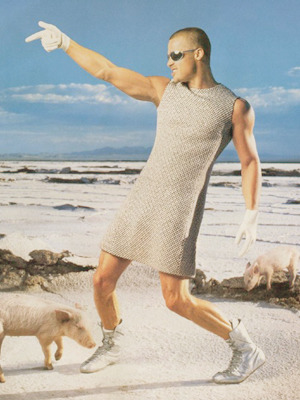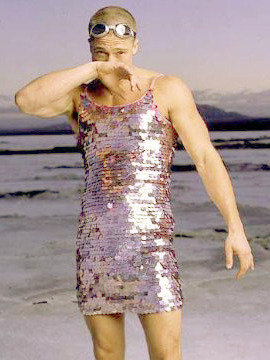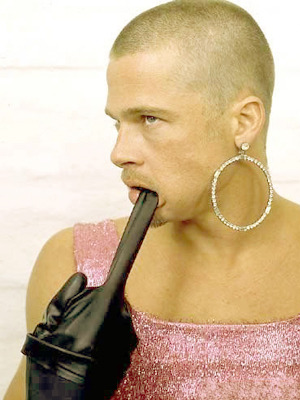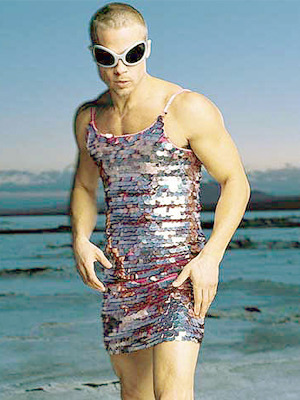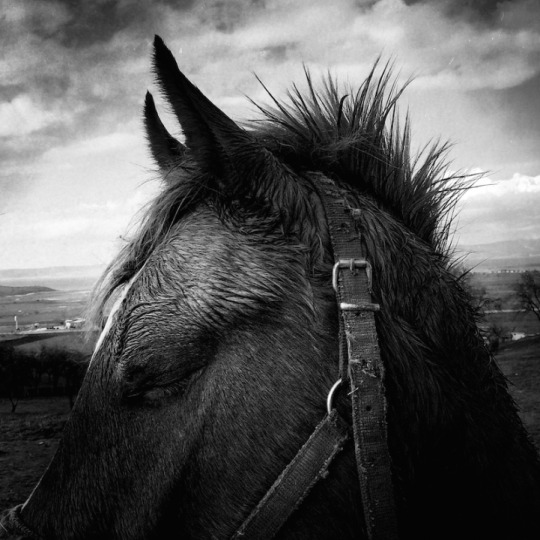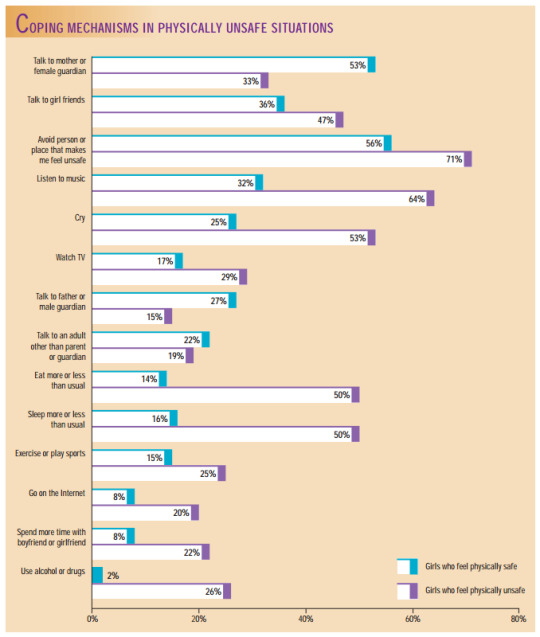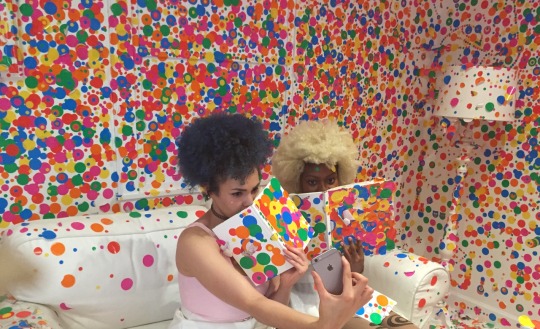Note
I JUST READ YOUR INTERVIEW ON MASK MAGAZINE, AND IT WAS LOVELY AND INSIGHTFUL. I AM JUST WONDERING IF YOU COULD EXPLAIN MORE OF YOUR THOUGHTS ON THE PERSONAL ESSAY? YOU HAVE WRITTEN PERSONAL ESSAYS BEFORE, LIKE ON THE GLOBE AND MAIL.
THANK YOU. I could, but it would turn into a personal essay. I think I’ve said before that all essays are personal, which is true insofar as you consider the origin story of the essay (were Montaigne’s essays anything but personal?) and the kind of person who is historically skilled as an essayist (a person whose chief argument is with herself). It’s like saying that all novels are romantic. It’s not a fact, but it’s truer than it looks if you know what “romantic” means—what I mean by it—in relation to narrative, which is that man alone among creatures can not only tell her own story, but can tell it with, as Faulkner said ages ago, an inexhaustible voice. In relation to the essay, “personal” means that the essayist does not want to speak for others, finding it hard enough to speak for her own mind, her own soul, whatever.
One problem with the “personal essay” is that it requires the essayist to speak too plainly and for too many people “as a woman,” “as a black woman,” “as a black queer woman,” rather than to write in a womanly style, a black womanly style, a black queer womanly style—a personal style, the thing I feel so passionately and contradictorily about. There are so many essays with no style which are subsequently not essays at all. Didion said style was character. Hardwick said style was fate. Someone else I’m sure has said what I believe, which is that style is argument (again, there is nothing more stylish than an argument raged against yourself, and there is nothing less stylish than an argument raged against people who don’t even care about you, which is one of the traps of what we now call “identity politicking” (never mind that in America all politics are identity politics)).
Another problem with the “personal essay” in our moment is that it mistakes the first person for the personal. An essay can’t just be about something that happened to you because you’re you. Everything has happened to someone; what new can you make of it is the question. There is nothing more personal than the connections you see between seemingly disconnected things, the ability to do so being, as I learned in an old episode of the X Files, “a mark of genius”; I just think it’s a mark of individuality, which is normal and easy to confuse with genius. Most geniuses are individuals, but most individuals aren’t geniuses, which is fine. We have enough geniuses. We need more and more individuals. There are a lot of people who know a lot, but knowing a lot is no reason to write an essay. Neither is feeling a lot. Neither is having learned a lot: a good essay is not a lesson but a relentless taking apart of the object(s).
The most personal essay and the longest I’ve written is yet to be published, because it’s all over the place, it tries too much, it’s too much of what I read and learn and research obsessively, too little about why I’m obsessed, in short because it’s a difficult realization of not why but how my brain works. The editorial response to this essay of mine is one, that it doesn’t properly work (I know; it’s my brain after all), and two, that it should be more about me and my life story and what it is in my life story specifically that impels me to think and watch and love and write about these things. I think the way I wrote this unpublished (and yes, not quite ready to be published) essay is as individual, specific, and crazy as the craziest stories of my life. I think if a) no one else would do it like me and b) I myself could not do it better, then I’ve succeeded.
I don’t mean that people should not tell stories from their lives in the form of essays. I’ve told stories from mine and always will. What I mean is to put an emphasis on form, as well as on style, because it’s form that gives meaning to experience; it’s not information, however personal. People in media complain that what we used to call “stories” we now call “content,” but a story is content, and an essay—a real essay—is totally, unbreakably a form.
(The interview in question is here at Mask Mag.)
(I could talk for much longer about what exactly are the forms of essays, but that would be a lecture for which I should probably be paid, except for the fact that I’m not that kind of professional. Most of my own essays I wouldn’t teach.)
151 notes
·
View notes
Photo

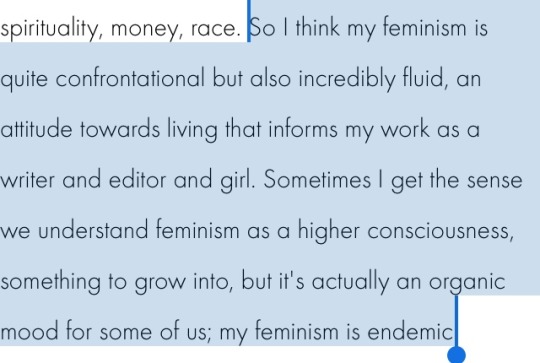
Doreen being her brilliant self in i-D.
Photographed by Katie McCurdy
469 notes
·
View notes
Photo
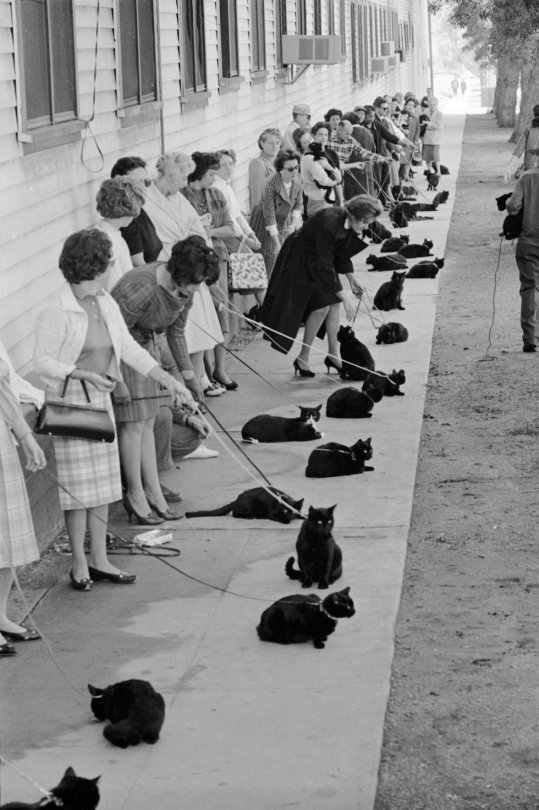
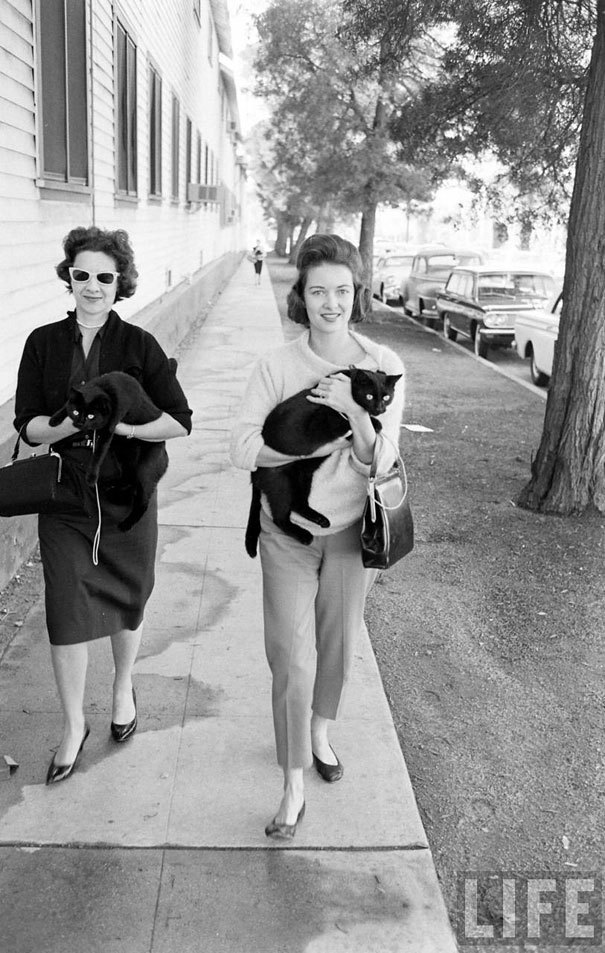
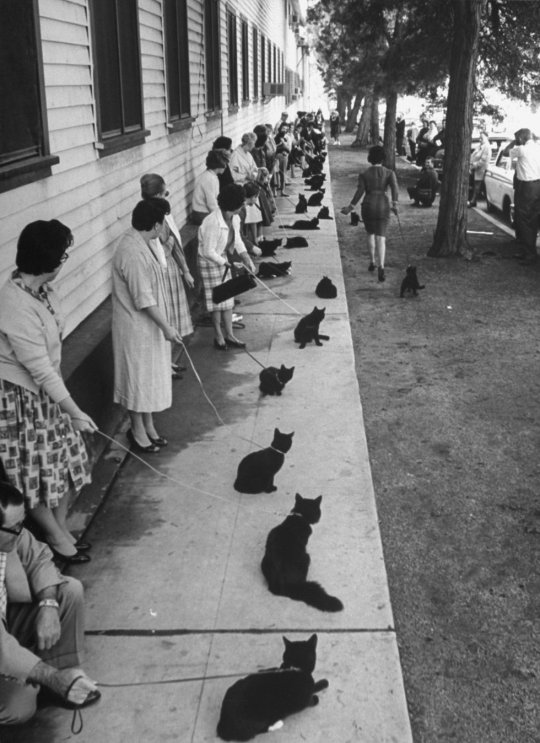
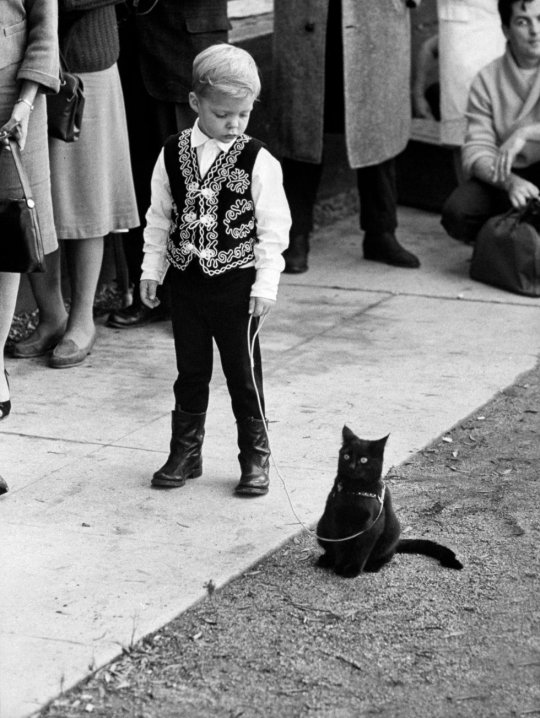
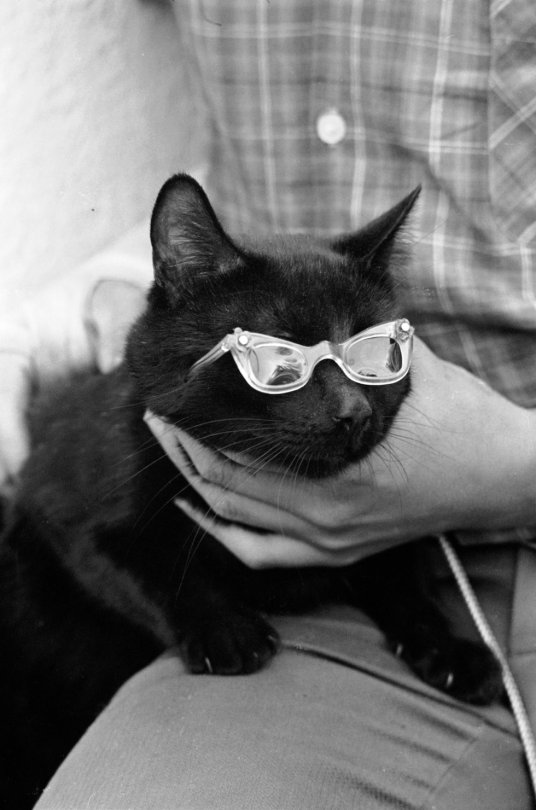
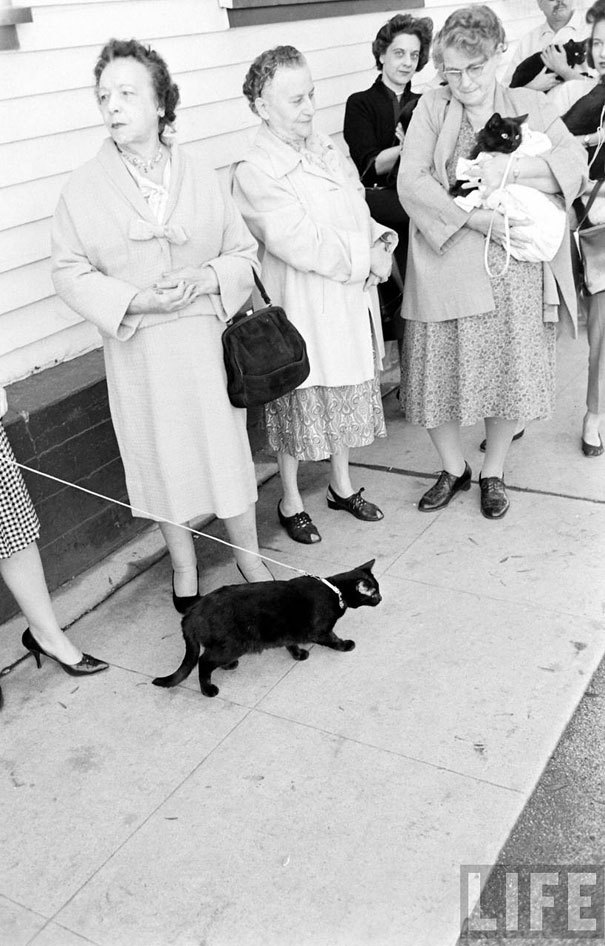
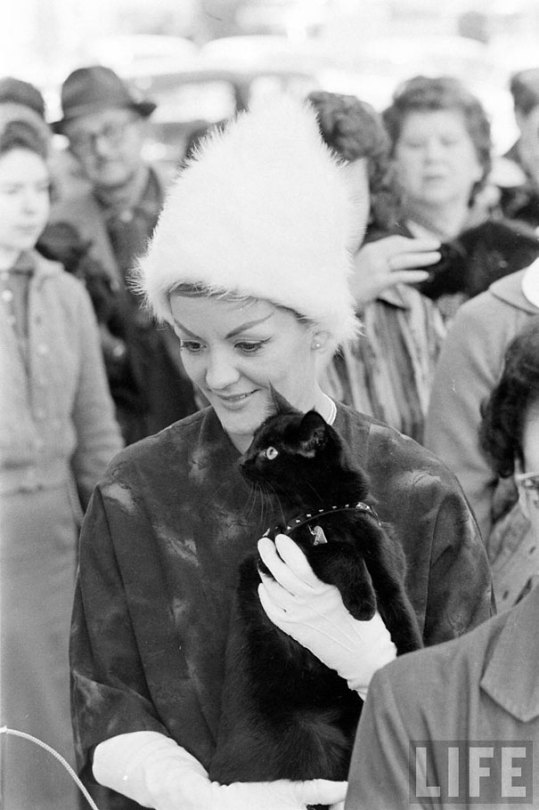

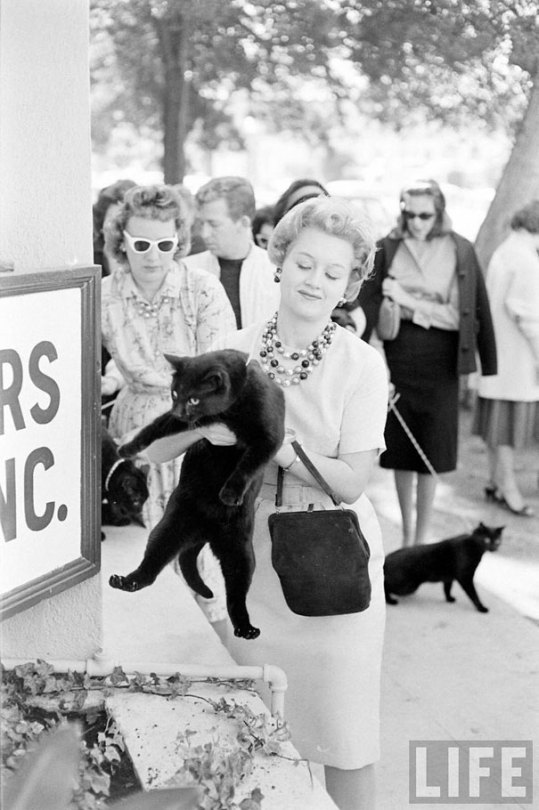

1961, Hollywood, California. Following a newspaper casting call, black cats are auditioning for the feline role in Roger Corman’s Tales of Terror (1962). Photos taken by Ralph Crane for Time magazine.
124K notes
·
View notes
Text
My mother died when I was 8, and it was sad and hard, but what I couldn’t know was how much of the world would remain a mystery to me because of it. I did not know the difference between shampoo and conditioner. I did not know how to comb tangles from my hair, or that washing my face required soap. Entire branches of family were lost because she was no longer there to keep in touch with them. I did not know what a period was. Or what sex was. I did not know how to say no. I did not know how to say stop. I did not know how to say help.
—Rachel Louise Snyder
1 note
·
View note
Audio
This song requires a bit of an explanation. This song was written when I first accepted my gender identity (genderfulid). I was deeply in love with a girl who had a boyfriend at the time but told me that I couldn’t treat her as well as he could because I wasn’t a boy. That struck a cord with me because I felt like a boy when I was with her and that made me realize I actually felt like a boy a lot more than I thought I did. I began to struggle with being a women but having all these feelings that did not match that vision in my head, remembering times at a younger age where I NEVER felt like a “girl” and I would argue with my mother about the fact. Being in love with this girl made all those memories come flooding back to me and it me realize that I wasn’t JUST a girl, I never had been. I was a boy too and it was painful to feel like I would never be able to show her how much she meant to me because I would never be a “boy” in her eyes. This song means a lot to me.
CHECK IT OUT ON THE FADER // DOWNLOAD
4K notes
·
View notes
Text
Power seems to be a major issue in your work, but what kind of power -- personal, political, persuasion, advertising?
I'm not going to address that question. If I bring up political power, personal power, it sounds like they're my terms, and they're not. They're yours. I think that I'm trying to engage issues of power and sexuality and money and life and death and power. Power is the most free-flowing element in society, maybe next to money, but in fact they both motor each other. And it's everywhere. And it's in this room right now, it's at every dinner table, every board room, every bedroom; every social situation is rife with the consequences of power. And I feel compelled to address that, because it is the major constituent in determining what our lives feel like, what our every-days feel like, what our days and nights feel like.
—Barbara Kruger
5 notes
·
View notes
Photo
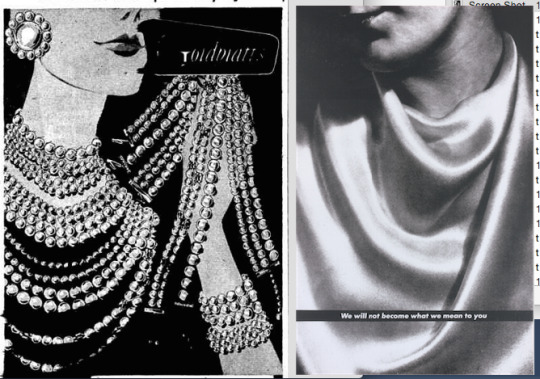
Goldbatts’ ad, 1963 // Barbara Kruger, ‘We Will Not Become What We Mean To You’, 1983
2 notes
·
View notes
Text
why i don’t trust Feminist Men/problems with progressive rhetoric
Last night, my friend Arabelle tweeted this, and I woke up this morning to a share of information on yet another friend’s Facebook wall regarding a guy (who I didn’t know) who, by his own admission, had sexually assaulted at least one person. This guy was, by all reports, someone who consistently used progressive, feminist, “Tumblr leftist” rhetoric (I saw it in his own words from screenshots), and people around him were expressing how scary it is that someone who talked the talk would be so far from walking the walk.
It is scary, but it isn’t anything new. And it’s why I recoil from men who are extremely keen to tell me exactly how Feminist they are. Besides the fact that I am personally put off by lifestyle activism and Feminism-As-Identity when it comes to any person (I don’t care about the talk much at all, let’s see that walk though), in my experience, the men who yell the loudest about how much they care about my liberation are statistically more likely to be abusive on a personal level. The ability of abusive, manipulative people to pick up and utilize the rhetoric of progressive movements in order to gain the trust of those they see as potential victims is frightening and real and it is incredibly common. It’s even easier to pick up that rhetoric now that social networking has made a lot of structural, theoretical ideas accessible that were previously harder to get one’s arms around. There has been great benefit from this accessibility, but there is also greater potential for people who don’t have the best intentions to get in there and use this rhetoric to inflate their egos at best and assault, abuse and bully others at worst. This is how we get, say, a Hugo Schwyzer. I have written about this process before.
It’s upsetting, and it’s something I didn’t want to believe was true for a long time, because no matter how many people hurt me or abused me or bullied me I always wanted to believe the best about them. (This has changed. Everyone has a line, I guess.) Over my lifetime of working for my own survival and for the voices of other sexual assault survivors I’ve encountered more abusers than I can name, including more than one man who wanted me to use my position as someone people listen to about these topics to personally attack another man who had not actually been abusive at all for personal gain. (The fact that I fell for this once when I trusted people more is one of my life’s biggest regrets and something I have to take responsibility for. It is not something that will ever, ever happen again.)
So: my allies are the people who have my back. They might not always say the right thing and we might disagree about language and tactics sometimes. But they will always listen to me thoughtfully, and vice versa, and when push comes to shove, they have my back, and I have theirs. This whole thing is ultimately all about caring about the innate humanity of others, seeing them and valuing them and respecting them for who they are in all their complicated, imperfect, structurally . I have friends who think discussion around the use of slurs is a little silly who have come to my aid when a man they were friends with was handsy with me at shows, or a man started harassing me in public.
Those are the people I trust. Trust is something that must be earned. It’s not something that comes with a cute Tumblr privilege checklist. It’s not something that comes with activist credentials. It’s not something that comes with hardcore lyrics about the Right Topics. No matter how much you show you care about things, nobody owes you access to their life. It doesn’t mean you can ignore boundaries; it doesn’t mean you are owed trust.
Trust comes with hard work, and love, and support, and real, complicated side-by-side struggle. That isn’t something that can be easily commodified and packaged and it looks like different things to different people. But it is, in this flurry of words and ideas that can so easily be picked up and manipulated, the only thing that’s real.
927 notes
·
View notes
